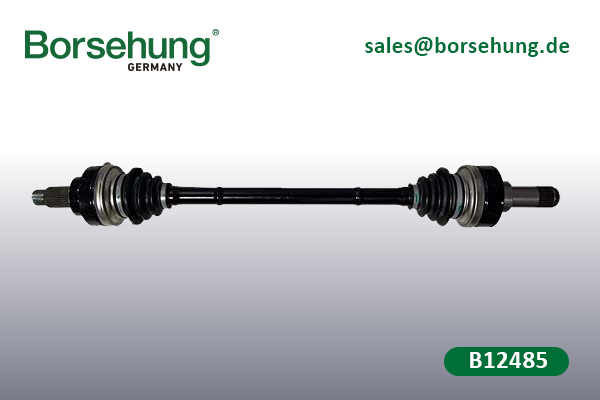Possible causes of abnormal noise of an automotive drive shaft:
Wear: After use for a long time, the bearing, universal joint, and other connecting parts of the drive shaft will wear, and the worn parts can easily generate abnormal noise.
Universal joint failure: The universal joint is an important part that connects the drive shaft and the transmission system. A worn, loose, or damaged universal joint can cause creaking or impact sounds during operation.
Unbalance: If the drive shaft is unbalanced during manufacturing or installation, it can cause tilting during operation and result in vibration and abnormal noise.

Improper installation: If the drive shaft is not installed with the right angle, position, or method, it may generate noise during operation.
Poor lubrication: Proper lubrication is required for all components of the drive shaft. Insufficient lubrication may lead to more friction and consequently abnormal noise.
Corrosion or damage: A structural damage to the drive shaft or its components due to environmental factors (such as rust, corrosion and impact) can cause noise.
Loose connection point: A loose connection between the drive shaft and the differential or transmission may cause abnormal noise during operation.
Overloading: If the load applied to the drive shaft exceeds its design capacity, structural problems cany occur, and noise will be generated as a result.
Disturbance by foreign objects: Some foreign objects (such as stones and debris) stuck near the drive shaft may also cause abnormal noise.

